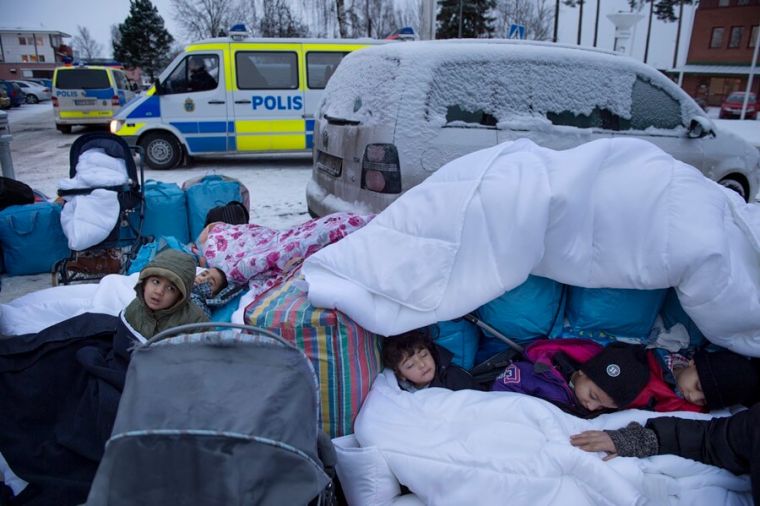Sweden to expel 80,000 refugees after crime surge, lack of resources prompt policy reversal

Sweden is moving to expel at least 80,000 immigrants—about 45 percent of the number of people who have filed for asylum claims—as crime incidents involving migrants have significantly increase since last year. At the same time, the government is finding its resources and police force stretched to the limit in accommodating the refugees and handling the disturbances.
Citing recent reports from asylum centres, National Police Commissioner Dan Eliasson said crime incidents jumped from 148 in 2014 to 322 in 2015, an increase of 174 cases.
The latest incident was the vicious attack on 22-year-old Alexandra Mezher, an employee at a reception centre, who was stabbed to death in Mölndal on Monday. She was trying to stop a fight that broke out at a youth centre, BBC reported Tuesday, when a 15-year-old male migrant stabbed her to death. The youth was quickly arrested.
"I believe that there are quite many people in Sweden who feel a lot of concern that there can be more cases of this kind, when Sweden receives so many children and youth, who come alone [to seek asylum]," Prime Minister Stefan Lofven told Radio Sweden on Tuesday, BBC said.
According to Eliasson, the police would need additional 4,100 employees to quell the chaos alone.
Many other countries in Europe have likewise reported a surge in criminal acts since the arrival of the migrants from the Middle East and North Africa, the BBC said. These countries include Austria, Finland, France and Germany.
The incidents reported were mostly sexual assaults committed by Muslim attackers. Robbery incidents were also recorded.
Swedish authorities said around 80,000 immigrants, comprising 45 percent of the 163,000 people who sought asylum in the Scandinavian country last year, would be deported to ease the police heavy workload.
Already, Interior Minister Anders Ygeman said police and authorities in charge of migrants have been ordered to organise their expulsion. He added that the expulsions will be done using especially chartered aircraft.
According to Eliasson, the policy reversal, while welcome, "comes too little, too late.''
"We have to go to work against unrest in the asylum centres which places a much greater demand than might appear outwardly,'' he said.
"In some places in Sweden this eats significant resources out of the police's capability. From several sources there are reports that staff are poorly prepared to handle violence, threats and conflicts while there are too few security guards."
"Police do not have the resources to handle all the disturbances at reception centres," he said.
Sweden, which is home to 9.8 million people, is one of the European Union countries that have taken in the largest number of refugees in relation to its population.











